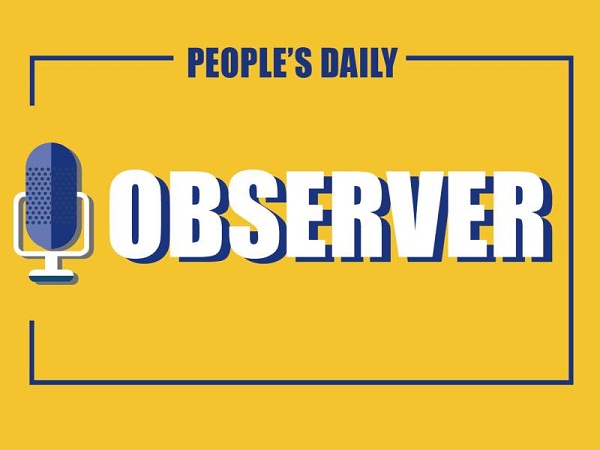
"The past is never dead. It's not even past." William Faulkner's wisdom is always reflected in new realities. When the US Secretary of State Mike Pompeo came to the Nixon Presidential Library to deliver his speech on China, the world he had in mind was undoubtedly the same cold war world he saw while stationed in Germany in the 1980s, where the entire international system boiled down to an ideological Armageddon.
Pompeo's team has apparently done a lot of planning for this speech. Senior Trump administration officials, including NSA Robert O'Brien, FBI Director Christopher Wray and AG William Barr, have already given the warm-up addresses. His choice of venue — Nixon Presidential Library — also has special significance, relating to the starting point of contemporary China-US relations. Perhaps Pompeo formulated this speech with Churchill, Reagan and other cold war superstars in mind. Will he join the ranks? If that's the real intention, Pompeo indulges his own fantasies.
The China Pompeo talked about in the speech was out of touch with reality. He imagined that he could induce a wedge between the Chinese people and the CPC. This is clearly a misjudgment of today's China. A recent study by the Ashish Center for Democratic Governance and Innovation at Harvard University found that more than 93 percent of Chinese people are satisfied with the central government. The study also concluded that the ruling Communist Party is on solid footing, and that its resilience stems from widespread popular support.
If Pompeo doubts the accuracy of this Harvard study, he might as well take a look at the Chinese social media platforms to see what people are saying about him. He may indeed find some difference in how he is viewed by the Chinese public and the Chinese government — the latter is more reserved.
Pompeo's vision of China-US relations is also unfounded. In his view, there is an all-out war going on between China and the US that both societies must engage in to ensure that their own country wins. But the truth is even in the current difficult political situation, US companies are still expanding their investments in China. So far this year, ExxonMobil, Honeywell, Tesla, Wal-Mart and many other American business giants have expanded their China presence. A recent survey by the American Chamber of Commerce in China found that 84 percent of US companies are unwilling to leave China. Though the American public's view of China might have been somewhat affected by the constant harsh rhetoric from Washington, there is no evidence showing that Americans see China as the next Soviet Union.
Pompeo's view of how the world sees the competition between China and the US is, once again, an illusion. In the Asia-Pacific region and beyond, the most common position shared by third-party countries in the face of rising tensions between Beijing and Washington is a firm resistance to taking sides. The Prime Minister of Singapore Lee Hsien Loong put this stance most clearly in his recent Foreign Affairs article. He wrote that
"Asian countries do not want to be forced to choose between the two." The COVID-19 pandemic, which is still raging around the world, has further increased every country’s need for international cooperation. The last thing the world needs now may be an ideological war that Pompeo wants to sell.
Melvin Leffler, a history professor at the University of Virginia, has studied the Cold War for decades. He said that there would not be a new cold war between China and the US, as the world system has significantly changed since the last one. He continued to argue that when the two countries think about the future of their relations, more focus should be put internally, because the task of the two countries' policymakers is similar and their real challenge is to make their systems work well at home. As competition between China and the US rises, perhaps such thinking is more important than ever to ensure the two powers' relations do not get derailed and destabilize the world.
However, just as Pompeo's latest speech shows, such thinking doesn't have much of a market in today's Washington. Why is the US so eager to escalate its confrontation with China? Many experts see this as a result from of both Trump's desire to use the "China card" to serve his re-election campaign, and strategic calculations by China hawks like Pompeo. In other words, figures like Pompeo are just using the current US political environment to bring about more irreversible changes in China-US relations. Viewed in this light, the coming months are dangerous. Apart from continuing the fight against the pandemic, the world also needs to prepare for a more aggressive and confrontational China policy from Washington.


